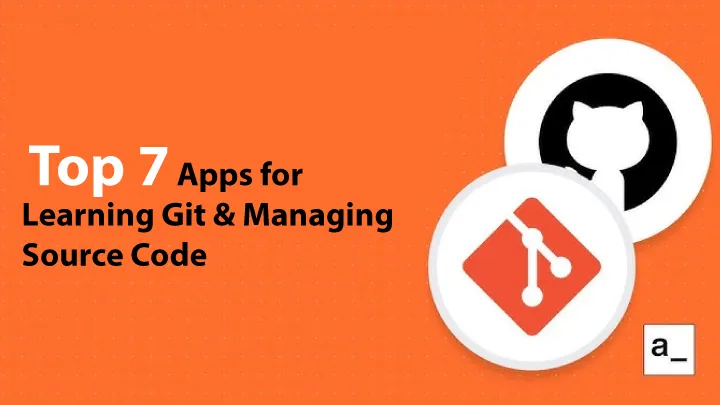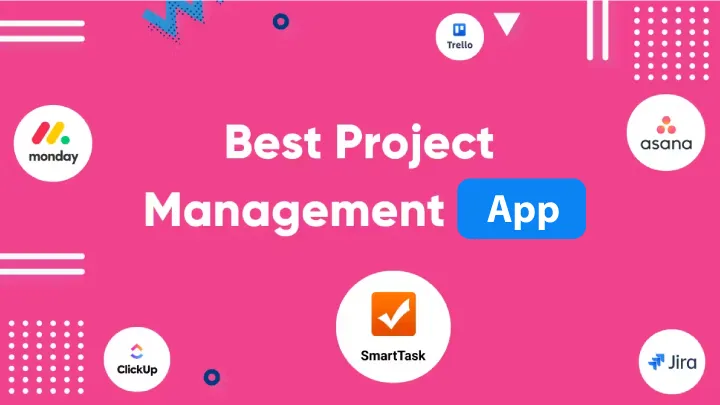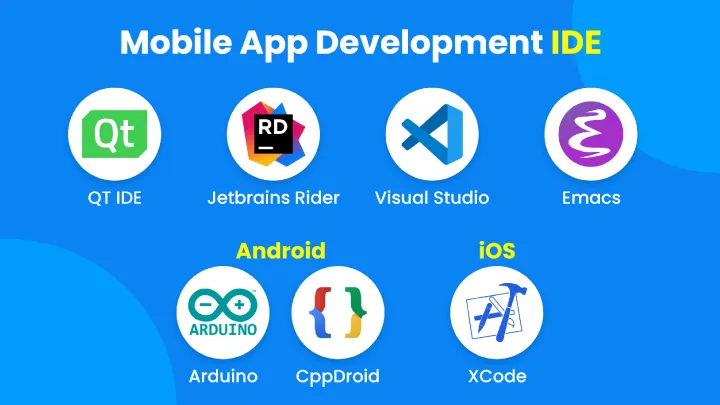Whether you’re preparing for technical interviews, training for contests, or just sharpening your problem-solving muscles, the right platform can make practice both effective and motivating. Over the last decade a handful of apps and web platforms have become the go-to places for programmers to learn algorithms, implement data structures, and measure progress under real constraints. Each has a different philosophy — curated tracks, contest-style stress, interview-focused problems, peer mentoring, or guided challenges — and choosing the right mix will speed your learning.
This article examines the Top 7 apps for practicing algorithms and solving programming problems. For each platform I’ll give a concise overview, list strengths and weaknesses in bullet points, and finish with a short evaluation. I’ll also include practical study tips and advice on picking the best platform for your goals. The write-up is detailed so you can judge which tool fits your skill level, schedule, and learning style.
1. LeetCode
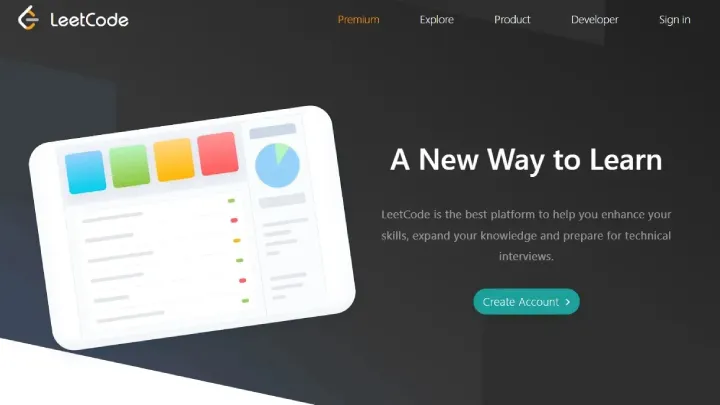
Overview:
LeetCode is the dominant platform for interview preparation. It offers thousands of algorithmic problems across difficulty levels (Easy / Medium / Hard), structured collections (arrays, dynamic programming, graphs, etc.), mock interviews, and company-tagged problems (e.g., “Amazon”, “Google”). In addition, LeetCode runs frequent contests and has a strong discussion community where users publish solutions, optimizations, and insights.
Strengths
- Massive problem catalog with curated lists for interview preparation.
- Company and role filters let you practice the exact flavor of problems asked by employers.
- Built-in online judge with multi-language support and test case customization.
- “Discuss” threads include many approaches, clean solutions, and complexity analysis.
- Mock interview and contest modes help build time management and pressure handling.
- Premium tier adds company-specific question sets, interview replay, and in-depth articles.
Weaknesses
- Premium content can be useful but costs money; some of the best company sets are paywalled.
- Popular problems get “overexposed”: solutions are widely known, which reduces novelty in contest practice.
- Discussion threads can reveal spoilers; you must avoid them if you want to struggle through a problem independently.
- Some problems are curated more for interview trickiness than for algorithmic elegance.
Evaluation:
LeetCode is the go-to platform if your primary goal is interview readiness. Its breadth, company tagging, and judge reliability make it ideal for systematic preparation: pick problem lists, track progress, and simulate interviews. Pair it with a theory refresher if you need deeper algorithmic understanding.
2. Codeforces
Overview:
Codeforces is the heartbeat of competitive programming. It hosts regular timed contests (divisions for different ratings), problem editorial writeups, and an active social community. Problems range from beginner-friendly to extremely challenging algorithmic puzzles used in international contests.
Strengths
- Frequent contests (rating rounds) with immediate rating feedback — great for building contest stamina.
- High-quality, creative problems that teach algorithmic thinking, heuristics, and trickiness.
- Editorials and community commentary often accompany problems after contests.
- Strong reputation system and global leaderboards motivate continuous improvement.
- Useful for learning advanced topics (data structures, number theory, constructive algorithms).
Weaknesses
- The contest intensity can be intimidating for beginners; initial rounds may feel demoralizing.
- Some problems expect heavy math or tricky observations, not just implementation skill.
- Fewer guided learning tracks; you learn by doing and post-contest reading.
- No company-tagged interview sets — focus is competition, not job prep.
Evaluation:
Choose Codeforces if you want to level up competitive programming skills and get comfortable solving problems quickly under pressure. It’s the best place to learn contest strategies, rating mechanics, and advanced algorithmic techniques.
3. HackerRank
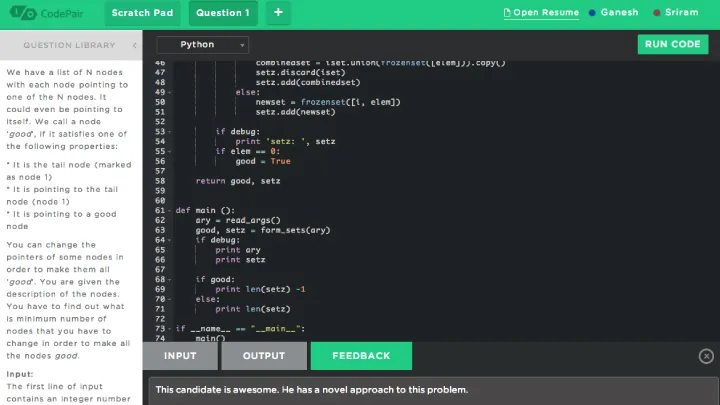
Overview:
HackerRank provides a broad mix of algorithmic problems, domain tracks (algorithms, data structures, databases, security), and company-sponsored interview kits. The platform is beginner-friendly and includes gamified badges, tutorial content, and coding environments geared for learning.
Strengths
- Structured "tracks" help you build a progression across topics.
- Clean learning resources and practice tests for multiple domains (SQL, regex, AI).
- Company challenge integrations make it a recruiting pipeline at some employers.
- Strong beginner support: explanations, sample tests, and test case scaffolding.
- Leaderboards, badges, and hackathons add motivation.
Weaknesses
- Problem difficulty distribution can be inconsistent and sometimes less polished than specialist platforms.
- The site historically had a more “learning” than “contest” focus, so contest readiness might be lower without supplementary practice.
- Company challenges sometimes prioritize specific formats or platform quirks that differ from onsite interviews.
Evaluation:
HackerRank is an excellent starting point for learners who want guided practice across several domains, including non-algorithms topics. Use it to fill knowledge gaps, practice fundamentals, and become comfortable with coding environments.
4. AtCoder
Overview:
AtCoder is a Japanese contest platform that offers regular beginner to advanced contests. Its problems are well-crafted and often lauded for clarity and balanced difficulty. AtCoder Beginner Contests (ABC) are particularly good for learners transitioning from practice to timed contest participation.
Strengths
- Clear, well-written problems with consistent grading and well-maintained editorial writeups.
- Beginner-friendly contest divisions and progressive difficulty make it accessible.
- Problems frequently require solid algorithmic understanding but are rarely obfuscated.
- Good compatibility with multiple languages and quick judge response.
Weaknesses
- Less community discussion in English compared to Codeforces or LeetCode (though editorials exist).
- The contest schedule is Asia-centric in timing, which may affect live participation for some regions.
- Fewer web resources and curated company interview tags — primary focus is contesting.
Evaluation:
AtCoder is a top pick for contest practice if you prefer cleanly stated problems and progressive difficulty. Beginners should start with ABC rounds, then graduate to ARC/AGC for advanced algorithmic challenges.
5. CodeSignal
Overview:
CodeSignal offers interactive practice and certified assessments (e.g., General Coding Assessment). It blends interview practice with arcade modes, company tests, and a polished online judge. CodeSignal’s scoring focuses on coding correctness and efficiency.
Strengths
- Arcade mode provides bite-sized practice with a gameified progression system.
- Standardized assessments and certifications are useful for recruiting.
- Balanced problem sets emphasize both implementation and algorithmic reasoning.
- Attractive UI and well-designed problem statements make practice pleasant.
- Company-grade tasks and mock interviews available.
Weaknesses
- Many certification features and company integration are tied to paid tiers or enterprise use.
- For deep algorithmic study, the platform is less community-driven than Codeforces or LeetCode.
- Some problems are more “puzzle” than broad algorithmic training.
Evaluation:
CodeSignal is well-suited to assessment preparation and to candidates wanting a standardized way to demonstrate skills. Its arcade tracks are great for daily practice without the pressure of rated contests.
6. CodeChef
Overview:
CodeChef is an older but still vibrant platform offering practice problems, long challenges (10 days), short contests, and a strong education focus with tutorials and college-level competitions. It’s widely used in India and by learners worldwide for both practice and contest training.
Strengths
- Long challenges allow deep exploration of problems without time pressure.
- Educational initiatives, tutorials, and practice sections for various difficulty levels.
- Strong community and campus contest culture (good for collaborative learning).
- Monthly short contests and lunchtime events sharpen timed problem solving.
Weaknesses
- Problem quality varies more than on curated contest platforms (some are excellent, some less polished).
- The site’s UI has improved but still lags behind sleeker platforms.
- For interview preparation you’ll need to select curated problem lists deliberately.
Evaluation:
CodeChef is a versatile platform for both paced learning (long challenges) and contest practice. It’s especially valuable if you appreciate working through problems over days and reading editorial after deep thought.
7. Exercism
Overview:
Exercism takes a different angle: language-focused exercises with mentor feedback. While not a contest platform, it has many algorithmic and problem-solving exercises across dozens of languages and emphasizes readable, idiomatic code and mentor critiques.
Strengths
- Mentor feedback model provides human guidance on style, idioms, and correctness.
- Language-specific tracks teach idiomatic approaches to algorithms in each language.
- Exercises emphasize test-driven development and clear solutions.
- Free core experience; community mentors contribute reviews and insights.
Weaknesses
- Not contest-oriented — slow cadence compared to timed training.
- Problem set focuses on correctness and idiomatic coding rather than speed or contest tricks.
- Availability of mentors varies by language and time zone.
Evaluation:
Use Exercism when your goal is to improve code quality and idiomatic usage while solving algorithmic problems. It’s superb as a complement to speed-oriented platforms: do LeetCode for speed and Exercism to polish code style and maintainability.
How to Use These Apps Effectively — A Practical Roadmap
Practicing algorithms effectively requires variety, discipline, and reflection. Here’s a detailed plan you can apply using the platforms above.
1. Identify your goal
- Interview Prep: prioritize LeetCode and CodeSignal; focus on company-tagged lists and mock interviews.
- Contest Skill: concentrate on Codeforces and AtCoder contests; aim for regular participation.
- Skill & Style: use Exercism and HackerRank tracks to refine idiomatic code and fundamentals.
- Deep Practice: use CodeChef’s long challenges to work through problems iteratively and read editorials.
2. Build a weekly routine
- Daily (30–60 min): solve one easy/medium problem on LeetCode or HackerRank; review optimal solutions.
- Twice a week: participate in a short contest or attempt a timed set (Codeforces/AtCoder).
- Weekly deep dive (2–4 hours): pick a harder problem, discipline yourself to resist immediate hints, write multiple solutions, and read editorials.
- Monthly: take a mock interview on CodeSignal or LeetCode and get feedback or time yourself.
3. Practice deliberately
- Track patterns: when you solve graph problems, maintain notes on templates (BFS/DFS, Dijkstra, SCC).
- Re-solve problems after a week or month to reinforce retention.
- Timebox problem attempts (e.g., 30–45 minutes) to mimic interview pressure.
4. Learn from editorials and peers
- After attempting a problem, study editorials carefully for alternative approaches and complexity trade-offs.
- Read top community solutions to learn idiomatic or mathematically elegant techniques.
5. Reflect and measure progress
- Maintain a small journal: problem name, algorithm used, mistakes, and lessons learned.
- Track quantitative metrics (problems solved/week, contest rating progress) and qualitative improvements (cleaner code, faster debugging).
Choosing the Right Mix
No single app covers everything. A practical combination:
- LeetCode + CodeSignal for interview drills and certified assessments.
- Codeforces + AtCoder for contest sharpness and problem-finding creativity.
- HackerRank + CodeChef for track learning and long-form problem solving.
- Exercism as the mentorship and code style polishing layer.
Start with one or two platforms. Master their workflows, understand how their judge and test harness works, and then expand. Switching tools without consistency dilutes progress.
Conclusion
Algorithmic skill is the compound interest of consistent practice. The platforms above each bring a unique strength: LeetCode’s interview focus and company lists, Codeforces’ contest rigor, HackerRank’s structured learning tracks, AtCoder’s clean contest problems, CodeSignal’s assessments, CodeChef’s long challenges, and Exercism’s mentorship-driven polish. Use them strategically: pick targets, schedule deliberate practice, measure progress, and iterate.
If you’re preparing for interviews, center your practice on LeetCode/CodeSignal while using Exercism to make your code readable. If you want to compete, commit to Codeforces and AtCoder contests and treat editorials as mini-textbooks. Whichever route you take, the key is persistence, active reflection, and progressively stretching difficulty. Mastery follows.












